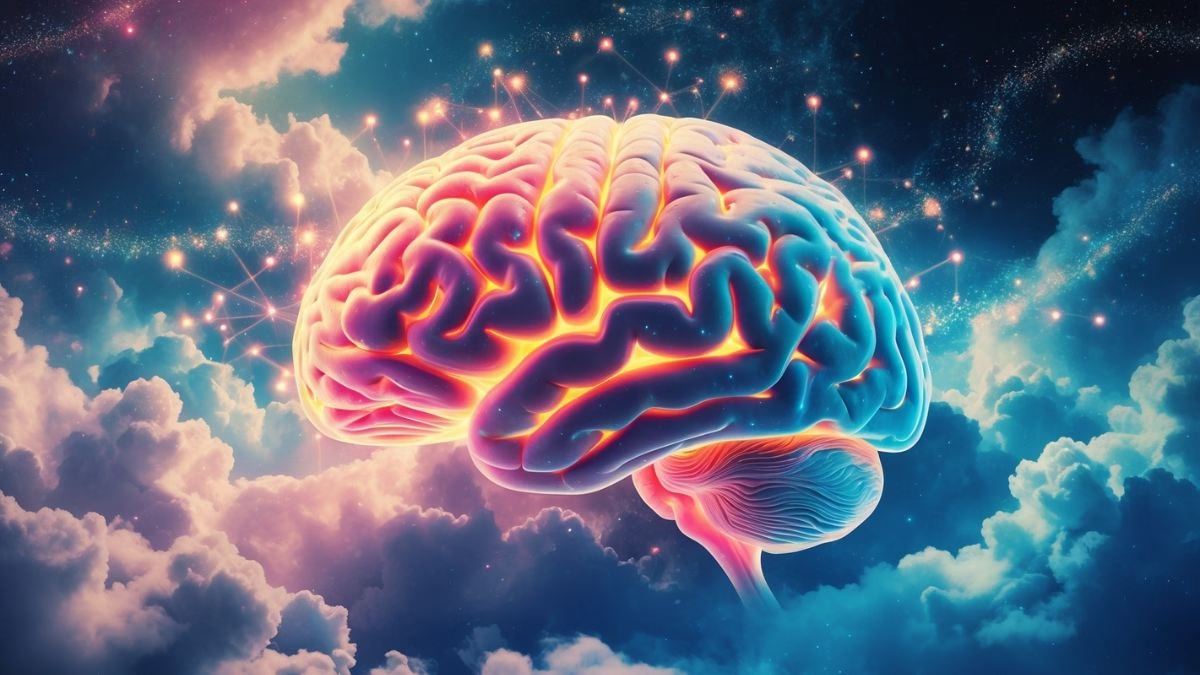Introduction
Welcome to the practical side of brain science! We’ve talked about what the brain is and how we’ve viewed it through history, but now it’s time for the most important question: How do we take care of it? This quiz is your interactive owner’s manual, drawing on the latest science to reveal how your everyday choices shape your brain’s health and future.
By taking this quiz, you’ll move beyond myths and headlines to understand the real, actionable science behind brain care. You’ll discover the surprising power of your gut, learn why exercise is like fertilizer for your brain cells, uncover the critical cleaning process that happens while you sleep, and find out which foods are the ultimate brain fuel. This isn’t just about getting a high score; it’s about empowering you with the knowledge to build a healthier, sharper, and more resilient brain for life. Let’s get started!
Learning Quiz
This is a learning quiz from English Plus Podcast, in which, you will be able to learn from your mistakes as much as you will learn from the answers you get right because we have added feedback for every single option in the quiz, and to help you choose the right answer if you’re not sure, there are also hints for every single option for every question. So, there’s learning all around this quiz, you can hardly call it quiz anymore! It’s a learning quiz from English Plus Podcast.
Quiz Takeaways | Building a Better Brain: The Four Pillars of Neurological Wellness
Hello and welcome. You’ve just explored the science behind what makes our brains tick, and more importantly, what keeps them ticking well. If there’s one single takeaway from all of this, it’s that you are the primary caretaker of your brain. Its health is not a matter of luck; it’s a consequence of the small, consistent choices you make every single day. Let’s tie together what we’ve learned by looking at the four fundamental pillars of brain health: your gut, your movement, your sleep, and your food.
First, let’s journey down to what many scientists now call our “second brain”—the gut. The gut-brain axis is not a metaphor; it’s a physical and chemical reality. Your digestive tract is lined with millions of neurons and is home to a teeming ecosystem of trillions of microbes. As we discovered, these tiny organisms are chemical factories, producing a huge amount of the body’s neurotransmitters, like the serotonin that helps regulate your mood. They communicate with your brain through a massive information highway called the vagus nerve. So, when you feel “butterflies in your stomach” when you’re nervous, that’s the axis at work. A healthy, diverse microbiome, fed by a diet rich in high-fiber plants (prebiotics), sends calming, happy signals to your brain. An imbalanced gut, fed by sugar and processed foods, can send signals of stress and inflammation. Caring for your gut is, quite literally, caring for your mind.
The second pillar is movement. For most of human history, physical activity wasn’t a choice; it was a requirement for survival. Our brains are therefore wired to work best when our bodies are in motion. When you engage in aerobic exercise, you’re not just working your muscles; you’re giving your brain the most powerful chemical cocktail for growth. You’re boosting a protein called BDNF, which acts like fertilizer for your brain cells, helping you grow new ones, particularly in the hippocampus, your memory center. You’re also improving blood flow, growing new blood vessels, and ensuring your brain gets the rich supply of oxygen and nutrients it needs to thrive. A daily walk isn’t a chore; it’s a biological investment in your future cognitive health.
The third, and perhaps most underrated, pillar is sleep. We tend to view sleep as passive downtime, a necessary inconvenience. Science tells us it is anything but. When you go into deep sleep, your brain initiates a remarkable cleaning process. The “glymphatic system” gets to work, flushing out the toxic metabolic waste that builds up during the day, including the beta-amyloid proteins linked to Alzheimer’s. At the same time, your brain is busy being a diligent librarian. It sifts through the day’s experiences, discarding irrelevant information and strengthening the important memories, moving them from fragile short-term storage into the secure long-term archive. To put it simply, sleep cleans and organizes your brain. When you consistently skimp on sleep, you are robbing your brain of its essential maintenance time.
Finally, we have the fourth pillar: the fuel you provide. Your brain is an incredibly high-performance engine, and it needs high-quality fuel. This isn’t about finding one magical “superfood,” but about adopting an overall pattern of eating that supports neurological function. We learned about the importance of omega-3 fatty acids, which are the literal building blocks of your brain cells. We saw how antioxidants from colorful fruits and vegetables act as a clean-up crew, neutralizing the damaging free radicals produced by the brain’s high energy consumption. And we touched on the importance of B vitamins as the spark plugs that help with energy metabolism. A diet like the Mediterranean diet isn’t a restrictive plan; it’s a delicious and sustainable lifestyle that provides all of these components in one package.
These four pillars don’t exist in isolation. They are deeply interconnected. Poor sleep can disrupt your gut microbiome. A processed-food diet can make you feel too sluggish to exercise. Chronic stress can ruin your sleep. But the good news is that the synergy works in the positive direction, too. A good workout can help you sleep more deeply. A healthy gut can improve your mood and reduce stress. A nutritious meal can give you the energy for a workout.
Building a healthier brain isn’t about making drastic, punishing changes. It’s about starting small, being consistent, and understanding the “why” behind your choices. It’s about recognizing that every meal, every walk, and every good night’s sleep is an act of profound self-care for the most important organ you will ever own. You are the architect of your brain’s future. Start building a better one today.










0 Comments